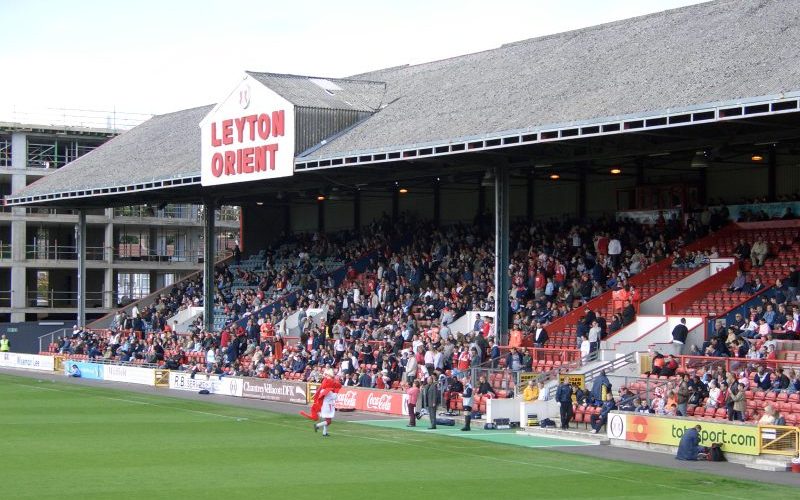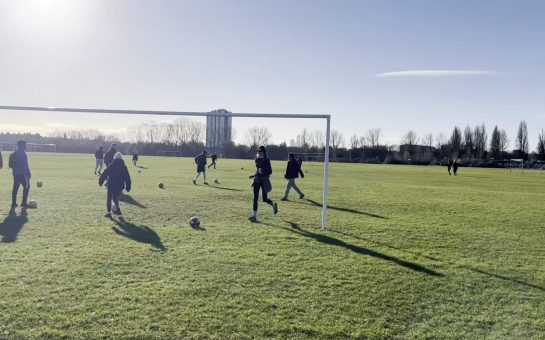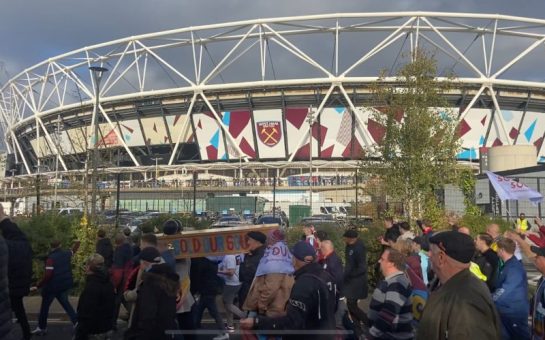Leyton Orient fans are cautiously optimistic about the club’s proposed move to a new stadium despite questions regarding its size and location.
The east London side, who have played at Brisbane Road since 1937, recently signed a memorandum of understanding with Waltham Forest council, signalling a joint ambition for Orient to remain in the borough.
This privately-funded move – to be completed by the club’s 150th anniversary in 2031 – is spearheaded by majority shareholder David Gandler, the American CEO of sports streaming company Fubo who acquired his stake in April.
Aynsley Taylor, editor of fanzine Leyton Orientear, said: “Gandler’s clearly very ambitious. This stadium development is the epicentre of his project at Orient.”
The club’s current ground Brisbane Road has a capacity of 9,271, with expansion limited by blocks of flats positioned at each corner.
Taylor, who conducted the first fan-media interview with Gandler, continued: “If it goes wrong, he’ll be able to protect himself, and we’ll be saddled with something that doesn’t work for us, that’s the concern.”
A club statement set out ambitions for Orient, who lost the League One play-off final to Charlton Athletic in May, to become an established Championship team, with CEO Mark Devlin calling the move a necessary evolution.
Gandler, in an interview with the Athletic, said: “It won’t just be a stadium – it will be one of the most technologically advanced campuses in the UK and potentially elsewhere.”
The project will cost hundreds of millions of pounds, be powered by an AI network, and potentially host other sports including American football.
Taylor said: “There are people who’d quite like us to stay as we are, bumbling along in the third division, staying at Brisbane Road, not needing a bigger stadium.
“Personally I would like to move but it’s a gamble, you’re rolling the dice and trusting Gandler to get it right.”
Martin Jaycock, an Orient fan for over 60 years who was excited by the move, said: “You look at the likes of Brentford or Bournemouth, who are now in the Premier League, we’ve played those clubs in League One and Two.
“If they can do it, we can do it too. But we won’t do it at Brisbane Road because you can’t expand the ground.”
Gandler commented in a video on the club’s website that compared to Orient’s current capacity of just over 9,000, Championship stadiums typically hold around 25,000.
The new ground’s capacity is a key issue for fans, with Orient promising to engage supporters throughout the process.
Tom Davies, vice-chair of Leyton Orient Fans’ Trust, said: “Consultation is quite a woolly word, often clubs tell their fans something and don’t listen to what comes back.
“What we want is a meaningful two-way dialogue all the way through.”
Davies, who felt the stadium being too big would be detrimental, said a realistic figure is between 16,000 and 20,000.
Another key issue is pricing – 4 in 10 UK adults see rising ticket prices as the most serious challenge facing British professional football, more than racism or hooliganism, according to Ipsos research data.
Gandler said in the club’s statement that Orient’s new home would protect it’s pledge to provide affordable football in the heart of east London.
Davies, an Orient regular for 40 years, said: “Compared to other London clubs, we need to sell ourselves on being accessible, welcoming to all parts of the community, and not being expensive to get in.
“That’s the selling point for a club like Orient.”
Calvin Bailey MBE, MP for Leyton and Wanstead, who Gandler has thanked for his strong support of the move, told the Londoners: “When I probed and tested him about what he wants for the club – his sole desire is for it to be at the heart of the community for future years.”
Gandler has said relocating within Waltham Forest could allow housing developments on the site of Brisbane Road.
Bailey added: “It doesn’t matter on which of the sites, we would expect to see in the development of a new stadium an understanding of its impact on the community and the potential for additional housing.”
Fans say Orient’s new ground being in the borough of Waltham Forest, preferably Leyton, is essential.
Speculation centres on three sites, although nothing has been publicly announced by the club.

Data from OpenStreetMap
Leyton Mills Retail Park, New Spitalfields Market, and Lee Valley Hockey and Tennis Centre are each slated for regeneration under the Leyton Mills neighbourhood development scheme led by Waltham Forest Council.
New Spitalfields is owned by the City of London Corporation, the governing body for the capital’s Square Mile.
The corporation announced in November last year that New Spitalfields would remain open, despite the proposed relocation of its other two markets, Smithfield and Billingsgate, after 2028.
Lee Valley Hockey and Tennis Centre, which hosted Olympic hockey events in 2012, is located in the north of Queen Elizabeth Olympic Park, falling just within the limits of Waltham Forest borough.
A new stadium at this site would leave Orient a stone’s throw away from rivals West Ham United, who they competed with for the right to play at the former Olympic Stadium after the 2012 games.
West Ham have struggled to settle since moving to London Stadium in 2016, with recent protests aimed at the club’s ownership featuring a banner reading ‘sold our soul’.
Orientear editor Taylor, who counts a league match with their east London neighbours as a dream game, said: “West Ham is a terrifying lesson for football clubs.
“There are some for whom the attraction has always been and will always remain the fact that Orient are small, we are intimate, we are familiar, we don’t change.
“East London has been through a lot of change in the last century.
“Orient has been a pillar of stability for a lot of people through the middle of that and I love that about it. And I think it would be an absolute tragedy if that got damaged.”
Featured image credit: ‘East Stand at Leyton Orient’ by Martin Belam via Wikimedia Commons





Join the discussion